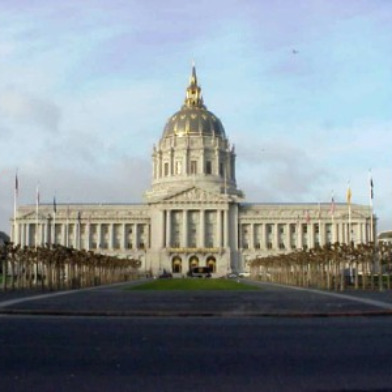 San Francisco City Attorney Dennis Herrera today filed a motion in federal court seeking to have a lawsuit against the city’s recently enacted nudity ban dismissed.
San Francisco City Attorney Dennis Herrera today filed a motion in federal court seeking to have a lawsuit against the city’s recently enacted nudity ban dismissed.
Four nudist activists filed the lawsuit last month as the Board of Supervisors was set to consider an ordinance authored by Supervisor Scott Wiener to prohibit public nudity in San Francisco except for children under five years old and in certain permitted events by the city.
The supervisors eventually passed the legislation by a narrow 6-5 margin and it is set to take effect on Feb. 1, 2013.
The activists, represented by attorney Christina DeEdoardo, argued in the lawsuit that being nude is protected on constitutional grounds as expressive speech and that the ordinance violates the equal protection clause by exempting events like Folsom Street Fair and the Pride Parade.
The city attorney’s filing stated that courts “have consistently upheld public nudity bans” against similar challenges, noting that similar bans are already in place in Berkeley, San Jose, Marin County and other jurisdictions.
The city attorney equated the nudist activists’ free speech arguments with marijuana advocates who oppose state and federal drug laws, but said “the First Amendment does not give them the right to use marijuana with impunity to express their disagreement with drug laws.”
Events such as the Pride Parade are exempted because they “are widely publicized, and the public has come to expect public nudity at those events.”
The filing states that public nudity elsewhere is a “7-day a week problem in neighborhoods where people live, work, shop and raise their children” and that the ordinance “protects the public from feeling distressed and ‘violated’ by the actions of the few individuals who like to appear naked in public.”
DeEdoardo, the attorney for the nudists, accused the city of wanting to become “as bland and anodyne as Peoria was once reputed to be” and wants to “ban everything that was once objectionable to somebody.”
She said the marijuana argument did not make sense since it remains illegal on the state and federal level, while “California policy has been pretty clear … you can’t be prosecuted simply for the state of being nude.”
DeEdoardo added that exempting certain events is creating a “pay to play” policy for public nudity and that the city attorney’s argument is “not a valid counterpoint.”
She said she plans on filing a response to the city attorney’s motion and that the two sides are expected to appear in court on Jan. 17 for a hearing on a preliminary injunction the plaintiffs are seeking to stop the legislation from taking effect.
Dan McMenamin, Bay City News
Want more news, sent to your inbox every day? Then how about subscribing to our email newsletter? Here’s why we think you should. Come on, give it a try.









